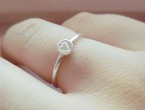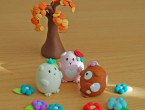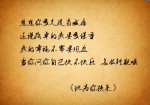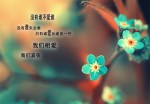
外研英语小学作文练习【一】
1.我站立之处成了看雨的好地方,谁能说这不是天地给我的恩泽?
2、《蒙娜丽莎》是世界上最杰出的肖像画,世界上有多少人能亲睹她的风采呢?
3、在阳光下,大片青松的边沿闪动着的白桦的银裙,不是像海边的浪花吗?
4、人与山的关系日益密切,怎能不使我们感到亲切、舒服呢?
5、这山中的一切,哪个不是我的朋友?
6、人类难道不属于大地吗?
7、我们怎能忘记父母的养育之恩呢?
8、难道你们根据错误的信息得出的错误答案,还应该得分不成?
9、孔子不能断定谁是的谁非吗?
10、你想,四周黑洞洞的,还不容易碰壁吗?
11、这么高的山,我们怎么爬得上去?
12、穿衣服还不会呢,怎么谈得上伟大?
13、难道我们能被这小小的困难吓倒吗?
14、贫困山区的孩子们打雪仗读书的愿望谁能阻止得了呢?
15、看到发那数不清的青松白桦,谁能不向四面八方望一望呢?
16、我们怎能容忍这种不文明的行为呢?
17、如果你每天都来浇水,桃花心木怎么会无缘无故枯萎呢?
18、他怎么能够这样来糊弄你们呢?
19、伟大的祖国诞生了,中国人民怎能不感到欢欣鼓舞呢?
20、我们怎么能让时间从我们身边匆匆溜走呢?
21、这么远,箭哪能射得到呢?
外研英语小学作文练习【二】
1、我就不相信,这些小精灵会不爱我们祖国的海岛,会不愿在这里安居乐业。
2、只要见过这水淋淋的绿,便很难忘却。
3、我的心已经感受到了。
4、他的精神值得我们学习。
5、人民不会忘记为国捐身躯的英雄。
6、小松鼠机灵可爱,我们全家人都喜爱他。
7、兄妹俩被这美妙的琴声陶醉了。
8、我们的祖国辽阔、美丽。
9、他的动人事迹令人难忘。
10、载人航天梦想的实现,让富有激情与魄力的炎黄子孙有了更高更远更绚丽的梦想。
11、世界上从来没有发现过这种动物的痕迹。
12、这故事书让在场的所有人都深受感动。
13、登泰山看日出是我很久以来最大的心愿。
14、它们的桔子散布在森林国边缘的小丘上。
15、我不能忘记与闰土的友谊。
16、美丽的草原让人心旷神怡。
17、我们班的同学很团结。
18、想想过去,看看今天,我激动,感到自豪。
19、“学习如逆水行舟,不进则退。”这是真理。
20、失败了还得干,不能知难而退。
21、黄山的云海令人流连忘返。
22、我们看到种的小树活了,心里特别高兴。
23、不劳动,连棵花也养不活,这是真理。
24、我们不能让时间从我们身边匆匆而过。
外研英语小学作文练习【三】
第三次课: 分词在句子中的用法
教学目标: 使学生初步了解及在句子使用分词
教学内容:
一、 动名词及不定式作业讲解
二、分词
现在分词和过去分词两种。
作为谓语,现在分词和be 一起构成进行时;过去分词和be一起构成被动语态,和have一起构成完成时。
例如:
I am reading a novel by Maupassant. 我正在看一本莫泊桑写的小说。(现在分词和be 一起表示主语正在进行的动作。)
Mr. Robinson has drunk five glasses of wine already. 鲁宾逊先生已经喝了五杯酒了。(过去分词和have 一起表示主语已经完成的动作。)
The gold fish bowl was broken by Xiao Tao just now. 金鱼缸刚才被小陶打破了。(过去分词和be 一起表示主语是动作的承受者。)
作为非谓语形式,分词可用作形容词和副词,在句子中充当定语、表语、补语和状语。但它仍保持动词的一般特征,可以有自己的宾语和状语。分词和自己的宾语、状语构成分词短语。 现在分词有一般式和完成式。它的一般式表示和谓语动词所表示的动作同时发生的行为或存在的状态;它的完成式(having + 过去分词)表示在谓语动词所表示的动作之前发生的动作或存在的状态。
现在分词有主动语态和被动语态(being + 过去分词。
过去分词只有一般式,表示在谓语动词所表示的动作之前发生的动作。过去分词(及物动词)本身可以表示被动的含义,因而没有别的被动形式。
例如:
Having failed three times, he didn’t want to try again. (=As he had failed three times, he didn’t want to try again. 他失败了三次,不想再干了。(having failed 表示发生在前的动作)
Walking along the sands, Crusoe saw in the sand the mark of a man’s foot. (=While he was walking along the sands, Crusoe? 克鲁索沿着沙滩走的时候,看见沙上有人的脚印。(walking 表示同时发生的动作)
The question being discussed seems important. (=The question is being discussed. It seems important. 正在讨论的问题似乎很重要。
The old days are gone. 旧时代一去不复返了。(gone 表示完成的状态)
I had my hair cut yesterday. 我昨天理发了。(cut 是及物动词的过去分词,表示“被人理发”。) 分词的否定形式是在分词短语前面加上not, never等否定词构成。
例如:
Not fearing the fire, the child touched and got a finger burnt. 小孩儿不知道怕火,用手去摸,把手指烫了。
Not knowing how to find the subway, I asked a policeman for help. 我不知道怎样找到地铁,就去找警察帮忙。
(一)现在分词和过去分词的区别
(1)在语态上现在分词表示主动的意思,表示它所修饰的人或物的行为;及物动词的过去分词表示被动的意思,表示它所修饰的人或物是动作的承受者。换言之,现在分词是它修饰
的成分所作出的动作,过去分词是它修饰的成分所承受的动作。
例如:
convincing facts 有说服力的事实 / convinced audience 被说服了的听众
the exploiting class 剥削阶级 / the exploited class被剥削阶级
a frightening dog一条让人害怕的狗 / a frightened dog一条被吓坏了的狗
driving gears主动齿轮 / driven gears从动齿轮
(2)在时间上,现在分词往往表示动作正在进行,过去分词表示动作已完成。
例如:
the rising sun (正在升起的太阳 / the risen sun(升起的太阳)
the falling rain(正在下的雨)/ the fallen leaves(落下的树叶)
stolen money(被盗的钱/偷来的钱)/ill-gotten wealth(不义之财)
a high-flying kite(高飞的风筝)
再看一些例子:
boiling water 沸腾的水/boiled water 开水/developing countries 发展中国家/developed countries 发达国家/an exciting story 令人激动的故事/ excited people 激动的人们
(2)在时间上,现在分词往往表示动作正在进行,过去分词表示动作已完成。
再看一些例子:
surprising news令人惊讶的消息/a surprised man受惊吓的人/an inspiring leader具有号召力的领袖/the inspired soldiers受到鼓舞的士兵/a delighted speech令人高兴的演说/the delighted audience(感到高兴的听众/a moving film动人的电影/the moved children受到感到的孩子们/a box containing tea装茶叶的盒子/the tea contained in a box装在盒里的茶叶/ falling snow正在下的雪/fallen snow box落在地上的雪
(3)做表语时的不同。现在分词做表语表示主语所具有的特征,意思是“令人如何”。过去分词多表示主语所处的状态,意思是“感到如何”。
例如:
His lecture is disappointing。I’m disappointed。他的演讲令人失望。我感到失望。
We are surprised to hear the news。The news is surprising。我们听到那消息吃了一惊。那消息令人吃惊。
The situation is encouraging。 We’re encouraged。形式使人鼓舞。我们感到鼓舞。
常用的还有:amusing/amused,astonishing/astonished,disappointing/disappointed,exciting/excited,frightening/frightened,interesting interested,moving/moved, relaxing/relaxed,satisfying/satisfied,shocking/shocked,surprising/surprised,terrifying/terrified,tiring/tired,worrying/worried等等。
(4)做状语的区别,分词短语在句中可做时间、原因、方式、伴随状语。现在分词的动作和谓语动作同时或几乎同时发生、意思是主动的。而过去分词的动作在谓语动作之前发生、意思是被动的。
例如:
Seeing nobody at home,she decided to leave them a note。看到没人在家,她决定给他们留个条。(主动意义,几乎同时
The secretary worked late into the night,preparing a speech for the president。秘书工作到晚上很晚,给总统准备一篇演说。(主动意义,同时
Tired of the noise,he closed the window。对噪音感到厌烦,所以他把窗户关上。(被动意义,
在谓语之前
Deeply moved,she thanked me again and again。她深深地受了感动,再三谢我。(被动意义,在谓语之前
Persuade by my mother,she gladly went there alone。在我母亲劝说下,她才高兴地独自去那里。(被动意义,在谓语之前
如果现在分词的动作在谓语动作之前发生,现在分词要用完成形式,但意思仍然是主动的。 例如:
Having watered the vegetables,they began to pick up the Apples。=After they had watered the vegetables,they began to pick up the apples。他们浇完了蔬菜之后就开始摘苹果。 Having finished the work,he packed his tools and left。完工后,他收拾起工具走了。 分词做状语时,前面可用连词或介词。
例如:
After eating my dinner quickly,I went to see Jim off。我赶快吃过晚饭就去给吉姆送行。 Though built before the Second World War,the engine is still in good condition。尽管是在二战以前建的,这引擎仍然处于良好状态。
Unless paying by credit card,please pay in cash。如果不用信用卡付款,请用现金付。 Tom will never do this unless compelled。汤姆永远也不会干这种事,除非被逼无奈。 She’s been quite different since coming back from America。从美国回来后,她大变了。
(二)用法
1.作定语。作定语的分词通常放在被修饰的名词之前。如果被修饰的词是something,anything,everything,nothing等,则分词放在这些词之后。分词短语通常放在被修饰的名词之后。
例如:
This is an interesting book。(=This is a book。It is interesting。这是一本有趣的书。
There is something interesting in the news。(=There is something in the news。 It is interesting。消息中有些有趣的事。
The man sitting by the window is our math teacher。(=The man who is sitting by the window is our math teacher。靠窗户坐着的那个人是我们的数学老师
The machine run by the old worker is made in Shanghai。(=The machine that is run by the old worker is made in Shanghai。那位老工人开的机器是上海造的。
Most of students singing were girls。(=Most of the students who were singing?唱歌的学生多数是女生。
Many of the villagers questioned refused to answer。(=Many of the villagers who were questioned?被问的许多村里人都拒绝。
注意:(1)分词作定语与动名词作定语的区别:
分词和它所修饰的名词有逻辑上的主、谓关系。动名词则没有这种关系,而表示它所修饰的词的用途或有关动作。
现在分词 动名词
A sleeping child(a child who is sleeping正在睡觉的孩子 A sleeping car(a car for sleeping卧车
A flying bird(a bird that is flying飞鸟 A flying course(a course for flying飞行课程
A swimming girl(a girl who is swimming游泳的女孩 A swimming pool(a pool for swimming游泳池
The running water(the water that is running流水 The running track(the track for running跑道 现在分词和它所修饰的名词都要重读,动名词所修饰的名词则不必重读。
(2)现在分词作定语时,它表示动作正在进行或与谓语动词所表示的动作同时发生(或差不多同时发生。
例如:
Who is the boy dancing over there?在那儿跳舞的少年是谁呀?
The girls swimming in the sea were in danger。 在海里游泳的姑娘们有危险。
如果两个动作在时间上有先后,一般不能用现在分词作定语,而往往用主从复合句结构。 例如:
The man who has gone to Shanghai will be back again。到上海去的那个人会回来的。
The teacher wants to talk to the students who smashed the windows。老师要找打破了窗子的那个学生谈话。
(3)be的现在分词being不能用作定语(可用作状语或被动语态中的助动词。表示这种概念时,也用主从复合句结构。
例如:
He has a brother who is a worker。他有一个当工人的兄弟。
2、作状语。分词和分词短语作状语时,可以表示时间、原因、行为方式等意义。表示时间和原因的分词短语相当于对应的状语从句。
例如:
Seeing the teacher entering the room,the students stood up。(=When the students saw the teacher entering the room,They stood up。学生们看见老师走进房间,都站了起来。 (时间
Heated,the Metal expands。 (=The metal expands if /when it is heated。金属受热而膨胀。(条件、时间
Being excited,I couldn’t go to sleep。(=As I was excited ,I couldn’t go to sleep。我兴奋得睡不着觉。(原因
Being a student,he was interested in sports。(=As he was a student,he was interested in sports。 他是个学生,所以对体育运动感兴趣。(原因
Inspired by Dr.Yang’s speech,Li Hua and his classmates decided to study physics harder。(=As they were inspired by Dr.Yang’s speech,Li Hua and his classmates decided to study physics harder。李华和他的同学们受到杨博士讲话的鼓舞,决定更加努力学习物理。 (原因 The children went away laughing。=The children went away。They laughed as they went。孩子们笑着走开了。(行为方式
The professor stood there,surrounded by many students。(=The professor stood there。He was surrounded by many students。教授站在那里,许多学生围着他。(行为方式
While reading the newspaper,father nodded from time to time。(=While he was reading the newspaper,father nodded from time to time。看报时,父亲不时地点头。(时间(分词前,可加表示时间的连词while或when。
3、作宾语补足语。
例如:
Can you get the machine going again?你能使机器再动起来吗?
You should have your hair cut。你该理发了。
I saw him coming last night。我昨天晚上看见他来了。
4、作表语。
例如:
The film is very moving。这部影片很感人。
Your homework is well done。你的作业做得好。
The visitors looked surprised.参观者看上去很惊讶。
The boys were seen walking on the grass。有人看见孩子们在草地上散步。
5、作句子独立成分(分词有自己的逻辑主语时,称为独立主格结构。)
例如:
Flags flying,the army men marched in the streets。旗帜飘扬,军队在街上行进。
All his ribs broken,he lay half dead。他的肋骨全部折断,半不活地躺着。
分词(短语作状语时,其逻辑主语必须与句子的主语一致。如果不一致,必须用独立主格结构来表示,也就是在分词前面加上它的逻辑主语。
My wife had a long talk with Sally, explaining why she didn’t want the children to play together我妻子与莎莉谈了很长时间,解释她为什么不想让孩子们在一起玩。(现在分词explaining是句子主语my wife做的动作,它们之间是主动关系
Given more attention,the trees could have grown better。如果对这些树多关心一些,它们本来会长得更好。(过去分词given表示的动作是句子主语the trees承受的动作,它们之间是被动关系
We explored the caves,Peter acting as guide。我们到那山洞探险,彼得做向导。 (独立主格 The train having gone,we had to wait another day。分词短语做状语时,前面可以加上连词或介词,但是分词短语和句子之间不能用并列连词(如but,and,因为并列连词接的是两个并列成分,而分词短语只是全句的一个状语部分。分词和主句之间可用逗号。
例如:
误:Having been told many times,but he still couldn’t understand it。
正:He was told many times, but he still couldn’t understand it。
注意:(1)分词作状语时,逻辑主语即句子的主语;否则要用从句或独立主格结构来表示。 例如:
Looking out of the window,I saw lots of people there。(=When I looked out of the window,I saw lots of people there。
我往窗外一看,看见那儿有许多人。 (looking out of the window的逻辑主语,就是句子的主语I。
(2)在see,hear,watch,notice等动词后,用动词不定式作宾语补语,通常表示(强调动作从开始到结束的全过程。如果用现在分词作宾语补语,则通常表示动作正在进行。 例如:
We sat two hours and watched the teacher make the experiment。我们坐了两个小时,看老师做实验。(两小时一直在看老师做实验
We passed by the classroom and saw the teacher making the experiment。我们走过教室,看见老师在做实验。(只是在走过教宰的一刹那间,看见老师正存做实验
I saw him enter the room, unlock a drawer, take out a document, photograph it and put it back。我看见他走进房间,打开抽屉,拿出一份文件,拍了照又放回去(表示一个接一个的一系列动作的全过程时,用动词不定式。
外研英语小学作文练习【四】
(一) 宇宙空间既无氧又无水,周围还游荡着无数运动的流星。宇航员“行走”太空,必须穿戴具有特殊防护性能的“航天服”。
目前最新型的航天服由尼龙、涤纶等九层绝缘材料叠合而成。它既能抵御宇宙射线,又能防止流星xí jī ( 。服装小巧、灵活,具有供氧、供水、隔热、存尿、通讯、摄影、照明等多种功能。为保证宇航员安全,还设有灵巧的电子报警系统。
整套宇航服从头到尾密封性能极好,总重量一百十三千克,这样重的服装在地面上穿戴,恐怕大力士也承受不了。不过,进入太空轨道,处于失重状态,穿戴也就十分zì rú ( 了。何况这种航天服的四肢、腰部等处,都装有自动关节,十分灵活。
这套航天服的价值是二百十五万美元。这是历代帝王的龙袍所望尘莫及、自愧不如的。
1. 根据短文中的音节写出词语,填在括号里。
2. 给短文取一个题目写在开头的横线上。
3.仔细阅读短文,想一想你从文章中获得了哪些关于宇宙航天服的信息,请从不同方面写出三条。
4.请从文中摘录两个成语,并用这两个成语写一句话。
(二)请你点亮节能灯
(1目前,高效照明的节能灯在国际市场上大受欢迎,据专家测算,如果以功率11W的节能灯代替60W的白炽灯,可以节电80%,亮度还能提高20%—30%。如果全国有12亿只节能灯,一年可节电858.48亿度,相当于三峡电站一年的发电量。但是,由于种种原因,节能灯在国内反应冷淡,无法发挥巨大的节能作用。
(2每年夏天,大部分省份就会产生电力紧张的情况,很多工厂因为用电量大,被迫限电。然而,现在国内一些大型用电企业在使用了节能灯后取得了很好的节能效果。2005年3月,昆明钢铁集团公司将13 000多只白炽灯换成节能灯,照明功率由整改前的1 032千瓦下降到235千瓦,综合节电率在70%以上,年节电110万度。
节能灯节电不仅能减少电力负荷,缓解我国电力紧张状况,而且还有巨大的环保效益。每节约1亿度电就意味着节约4.04万吨标准煤,减少排放10.64万吨二氧化碳、0.09万吨二氧化硫。
(4据悉,美国、法国、荷兰、英国、意大利等国从20世纪90年代起,纷纷制订出相关的扶持政策,用于推广节能灯等节能产品。仅美国环保局从1991年开始实施绿色照明计划以来,就投资了10多亿美元用于推广高效照明产品。
(5经过多年的发展,我国节能灯产业获得了长足的发展,不仅掌握了相关的核心技术,产量也跃居世界第一,2003年中国节能灯的产量已占全球产量的70%以上。但是,我国生产的节能灯主要是用于出口,国内的使用量偏低。以2003年为例,当年节能灯在国内的销售量为3.56亿只,白炽灯的使用量却高达30亿只。
(6为何节能灯在国际市场大受欢迎,而国内反应却这么冷淡呢?这里面原因很多,其中一个主要障碍就是行业市场不规范,运行混乱。一些小作坊制造的节能灯光效低、寿命短和光衰快,严重损害了消费者的信心。2005年2月,国家工商行政管理总局对上海、广东两地的节能灯商品进行检测,结果抽样合格率仅为39%。行业市场的混乱导致规范的节能灯生产厂家不敢将主要精力放在国内。厂家倚重出口加剧了假冒伪劣产品的泛滥,使消费者对节能灯的信心更难建立起来,恶性循环,导致了节能灯产品“墙内开花墙外香”的局面。
(7另外,扶持政策不完善也是节能灯在国内遇冷的原因,我国还缺少全国性的鼓励高效照明产品生产、使用的财政、税收优惠政策,推广节能灯产品也缺乏有效的投融资渠道和激励机制。美国等发达国家对购买节能产品都会进行补贴,在美国市场,消费者每买1只“得邦”牌节能灯(浙江出口产品,便能得到美国能源部3美元的补贴。
1、“但是,由于种种原因,节能灯在国内反应冷淡,无法发挥巨大的节能作用。” 节能灯在国内反应冷淡,这是由于什么原因造成的?
2、短文第三段中“每节约1亿度电就意味着节约4.04万吨标准煤,减少排放10.64万吨二氧化碳、0.09万吨二氧化硫”这一句话说明了什么?主要运用了什么说明方法?
3、联系短文内容说说“墙内开花墙外香”的意思。 4、2005年2月,国家工商行政管理总局对上海、广东两地的节能灯商品进行检测,结果抽样合格率仅为39%。句中的“仅”去掉表达效果有什么不同?
5、文中还用了哪些说明方法?
6、日常生活中除了使用节能灯外,你还知道哪些节能知识?
7、请你设计一条简短的标语,提倡大家多使用节能灯以节约电力能源。
外研英语小学作文练习【五】
考辅P42
1.IgaveTomthebook.//
2.Heboughthismothersomeflowers.//
3.Thebridgewasbuiltbyworkerslastyear.//
4.Wehavetofinishtheworktoday.//5.Hewilldohishomeworktomorrow.//
6.Wecleantheroomseveryday.//7.Thewriterspent3yearsonthebook.//
8.Itisabookwithalotofbeautifulpictures.//
9.Thebooksoldverywellduringthefirstweek.//firstweek.
10.Marywastheonlyoneintheoffice.//
11.Shefinishedherworkat10o’clock.//Shedidn’12.Shehadtotakeataxihomebecauseitwastoolate.
13.LizaandMikearrivedattheGreatWallintwohours.
14.Theywerehappytogettothetop.//
15.TheyenjoyedthemselvesontheGreatWall.//
16.ThepostmansentSusanandTommyapaperbox.
17.Theyopeneditandfoundapresentfromtheirfriend.
18.Theybothlikedthepresentandfeltveryhappy.
19.Alicedidn’tfeelwelltoday,soshewenttothehospital.
20.Thedoctoraskedhersomequestions.//
21.Thedoctordidn’tgiveheranymedicineintheend.
(全真1)
1.ThecapitalAirporthasbeeninusefor20years.//
2.ThecapitalAirportisthelargestoneinChina.//
3.Ihavenevertakenaplane.MyfriendLiPing,either.//
(全真2)
1.Fathergave$20formetobuysomebooks.//
2.IwasexcitedwhenIsawsomanygoodbooksinthebookstore.
3.ButsomebookswouldcostmorethanIhave.//
ButIdidn’//(全真3)
1.ManyChinesefriendswenttotheparty.2.Tonywasgivenalotofpresentsbyhisfriends.//Tony’
3.SeeinghisChineseteacheratthepartymadeTonyveryhappy.//(全真4)
1.Iwanttoeatsomething.//2.Therefrigeratorisempty.//3.Bobspentfifteenyuanonthehamburger.///(全真5)
1.Mr.Wangdoesn’tworkinthatfactoryanylonger.//
2.Mr.Wanglefthomeearlierinordertocatchthebus.3.Mr.Wangfindsitnoteasytogetalongwiththatyoungguy.//(专家1)
1.Manypeoplewentshoppingyesterday.
2.Janespent4hourstobuyNewyeargifts.//
3.Shewassotiredthatshecouldn’twalkanylonger.//
(专家2)
1.Myfriendssaidtome,“Areyoufree?”
2.Shewantedmetogoshoppingwithher.
3.Shethinksitapleasuretogoshoppingwithafriend.
外研英语小学作文练习【六】
1. Nancy is too young to dress herself.
Nancy is not _____ _____ to dress herself.
2. My watch doesn't work well.
There is ____ _____ _______ my watch.
3. Jane doesn't go to work by bus any longer.
Jane ____ _____ _____ to work by bus.
4. It took Mary two weeks to prepare for the exam.
Mary _____two weeks____ ______ for the exam.
5. It seems that they have known each other.
They seem to _____ _____ each other.
6. "My grandpa doesn't like coffee or coke" said Bob
Bob said that _____grandpa liked _____coffee _____coke.
7. Cao Fei joined the League three years ago.
Cao Fei _____ ____ _____ the League for three years.
8. I prefer walking there to going by bus.
I prefer to walk there ____ _____ going by bus.
9. -Thank you very much. -You're welcome.
- ____ a lot. -Not at____ .
10. Kitty does well in English.
Kitty ____ ____ ____ English.
11. They realized Hainan was a beautiful place after they reached there.
They____ realize Hainan was a beautiful place_____ they reached there.
12. We will have to finish the work hardly if you don't help us. We can't finish the work _____ _____ ______
13. My dictionary isn't so thick as yours.
My dictionary is _____ than yours.
14. Could you tell me where the East Street Hospital is? Excuse me, ____ is the _____ to the East Street Hospital?
15. The book is exciting to read.
It is ____ _____ read the book.
16. Jack's mother asked him, "Have you packed your things?" Jack's mother asked him ____ he ____ packed his things.
17. She likes singing better than dancing. She ____ singing ____ dancing.
18. Remember to ring me up as soon as you get to Nanjing Make ____ to give me a ring as soon as you _____ Nanjing.
19. They couldn't catch the train because of the heavy traffic. The heital?
15. The book is exciting to read.
It is ____ _____ read the book.
16. Jack's mother asked him, "Have you packed your things?" Jack's mother asked him ____ he ____ packed his things.
17. She likes singing better than dancing. She ____ singing ____ dancing.
18. Remember to ring me up as soon as you get to Nanjing Make ____ to give me a ring as soon as you _____ Nanjing.
19. They couldn't catch the train because of the heavy traffic. The heavy traffic _____ them from _____ the train.
20. My brother has been away from home for two days.
My brother _____ home two days _____ .
21. Li Lei decided to move to Canada when he was thirty.
Li Lei made a _____ to move to Canada at the _____ of thirty.
22. Jim was too careless to pass the exam last term.
Jim was not_____ _____ to pass the exam last term.
23. If you don't hurry up, you can't catch the train.
Hurry up, _____ you may _____ the train.
24. Yang Li wei said to us, "I'm going to visit your school tomorrow. " We were all pleased.
We were all pleased when we heard Yang Li wei_____ visit_____ school the next day.
25. This is the most interesting film I have ever seen. I have ____seen _____ an interesting film before.
26. I was late for school because of the traffic accident. The traffic accident _____ me _____ getting to school on time.











